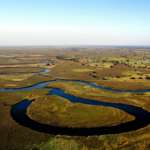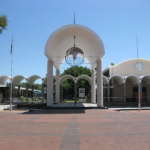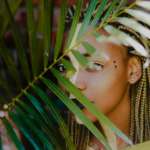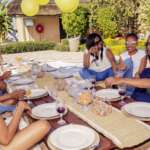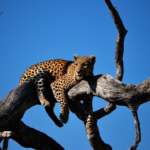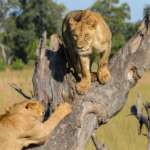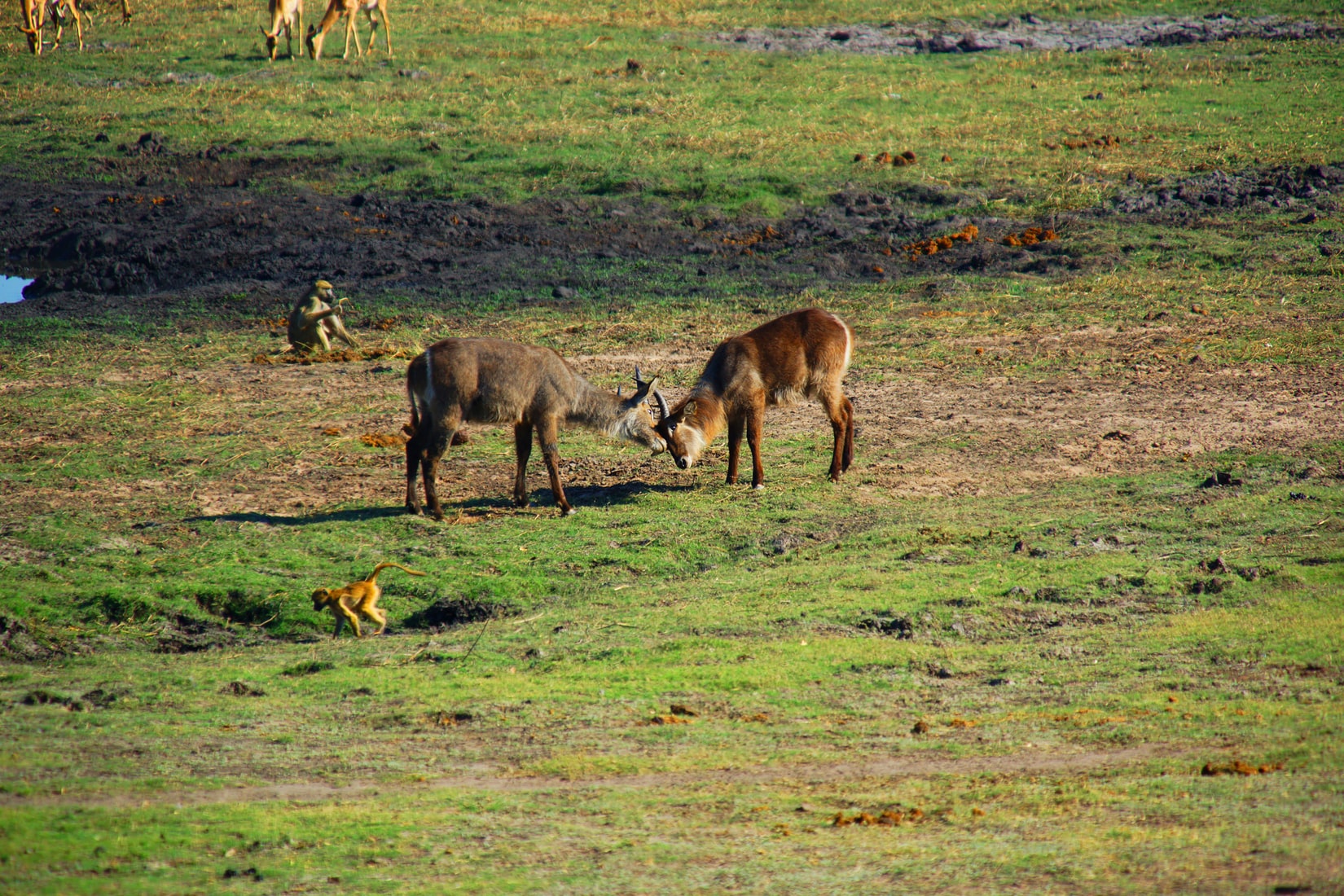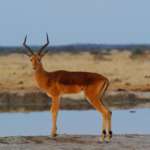A Closer Look at Botswana
Botswana Flag

Botswana Formation Date
Botswana gained independence from the United Kingdom on September 30, 1966.
Botswana Capital Name
Gaborone
Botswana Neighbours
Exploring Botswana
Origin of Botswana
Botswana is comprised of landlocked former British protectorate in Southern Africa, and is bordered by both Namibia and South Africa. The Commonwealth nation declared its independence on September 30th, 1966, and was immediately welcomed into the United Nations. In addition to independence from the United Kingdom, Botswana also achieved additional autonomy from South Africa by gaining control of its internal and external affairs in 1968. Botswana is amongst the world’s most stable countries, having successfully sustained its economy and avoided war.Culture
The culture of the Republic of Botswana is diverse, drawing influence from the various ethnic groups within the country as well as from the former colonial power, the United Kingdom. Music, dance, storytelling and art are integral components of traditional cultural practices that are showcased at national events and can be found within local markets. Additionally, Botswana is home to many renowned authors such as Unity Dow, Alexander McCall Smith, and Unity Dow who’s work explores the history of Botswana and the daily lives of its people.Sport
Sports plays an integral role in Botswana’s culture and can be observed everywhere from neighborhood kick-abouts to international sporting events. Football is undoubtedly is the most popular sport with the Botswana National Premier League forming a crucial part of the culture. Athletics is also popular in the nation, and the country has hosted various multi-sport regional events throughout the years. Adventure activities such as parasailing, abseiling, and rock climbing can also be found in more entry-level forms located within the populace.Religion
A majority of the population of Botswana practice one of two major religions: Christianity or indigenous beliefs. Christianity is the dominant belief system throughout the country and is practiced by 79% of the population. The remaining 21% of the population practice traditional ethnic religions along with Hinduism and Islam. Botswana is a largely tolerant nation and religious differences are celebrated across the board.Languages
The official language of Botswana is English, which is taught in schools and widely utilized in government and official communication. However, it is not the first language of the nation’s inhabitants, with Setswana holding the title of most commonly spoken language. Other prominent languages include Afrikaans, Tswana, Sotho and Ngwaketse.Education
Botswana provides free education for all children between the ages of 6 and 17. Education is compulsory for grades 1–7 (ages 6–13) and is optional for locations 8-13 (ages 14-17). English is the primary language of instruction and a variety of subjects are taught including mathematics, science, law, and agriculture. Primary school education is followed by six years of secondary schooling, culminating in a Higher Education Certificate. Higher education is provided largely by Botswana’s three universities, the University of Botswana, Botswana International University of Science and Technology, Botswana Accountancy College.Demographics
The Republic of Botswana’s population is estimated to be 2.34 million inhabitants, resulting in a population density of 3.5 people per square kilometer. The population is made up of several ethnic groups, with the Tswana people accounting for 79.2% of the population and other groups, mostly Kalanga, comprising the remaining 20.8%. The population is relatively young, with 38.5% of the population over the age of 18 and a median age of 17.7 years.Commerce
Botswana is a largely free market economy and has experienced strong economic growth over the past two decades. The nation’s GDP has grown at an impressive rate of 4% or more each year since independence. Botswana’s major industries include mining, construction, tourism, retail and banking. The government is the nation’s largest employer and provides a wide range of services and benefits to its citizens.Weather
Botswana is generally hot and dry, with the Kalahari Desert covering most of the land. The country is located in the Tropics and has two distinct seasons, the wet season from December to April and the dry season from May to November. Temperatures vary greatly across the nation, with higher temperatures experienced in the northeast Kalahari and lower temperatures in the southwest near the South African border.Borders
Botswana’s borders are varied, with nearly a thousand kilometers of fencing border with Namibia and the Limpopo River line separating the country from South Africa. The border with Zimbabwe also follows the Limpopo river line, with Botswana and Zambia sharing a 25km border that was generally unaffected until 1989 when Zambia began moving away from a landlocked nation. The majority of Botswana’s land mass is surrounded by two fences, but there are some gaps where no physical borders are present due to land disputes and closed borders.Botswana Image Gallery
Gallery Caption: Botswana. Source Unsplash.com
Botswana Highest Point Name
The highest point in Botswana is Tsodilo Hills. It is situated in the northwest of the country and stands at 1,489 m (4,884 ft) above sea level.
Botswana Highest Point Value
1,491 m
Botswana Capital Longitude
24.6282° S
Botswana Capital Latitude
25.9231° E
Botswana Official Languages
English, Setswana
Botswana Ethnic Groups
80% Tswana
10% Kalanga
2.9% Basarwa
3.1% White
4% Other
Botswana Religions
73% Christian
20% No religion
6% African traditional religion
1% Others
Botswana Total Area
581,730 km2
Botswana Land Area
566,730 km2
Botswana Water Area
15,000 km2
Botswana Total Population
2,255,000
Botswana Currency Name
Pula
Botswana Currency Code
BWP
Botswana Time Zones
- UTC+02:00
Botswana is on South African Standard Time (SAST) which is UTC+2. Daylight Saving Time is not observed. This means the time remains the same in Botswana throughout the year.
Botswana Calling Code
+267
Botswana Internet TLD
www.aveholidays.bw
How to Say "Botswana" In Different Languages?
- Mandarin
- 波札那 (zh-CN)
- Arabic
- بوتسوانا (ar-EG)
- French
- Botswana (fr-FR)
- German
- Botswana (de-DE)
- Greek
- Μποτσουάνα (el-GR)
- Hindi
- बोट्सवाना (hi-IN)
- Indonesian
- Botswana (id-ID)
- Hebrew
- בוטסואנה (he-IL)
- Japanese
- ボツワナ (ja-JP)
- Dutch
- Botswana (nl-NL)
- Yoruba
- Bọṭswána (yo-NG)
- Spanish
- Botswana (es-PE)
- Polish
- Botswana (pl-PL)
- Romanian
- Botswana (ro-RO)
- Russian
- Ботсвана (ru-RU)
- Korean
- 보츠와나 (ko-KR)
- Thai
- บอตสวานา (th-TH)
- Swahili
- Botswana (sw-TZ)
- Vietnamese
- Bốt xoa-na (vi-VN)
Botswana Popular Holidays
- Independence Day
- 30 September to 1 October
- New Year's Day
- 1 January
- Plains peoples Day
- 6 January
- Okavango Delta Day
- 1 February
- Setswana Language Day
- 3 February
- Mahalapye Day
- 3 February
- Gantsi Day
- 10 February
- Palapye Day
- 17 February
- Tutume Day
- 24 February
- International Women's Day
- 8 March
- South East Day
- 13 March
- Cultural Day
- 21 March
- Selibe Phikwe Day
- 28 March
- Good Friday
- 30 March
- Easter Monday
- 2 April
- Easter Tuesday
- 3 April
- World Health Day
- 7 April
- Mozambique Day
- 7 April
- Maun Day
- 11 April
- National Women's Day
- 14 April
- Kasane Day
- 17 April
- Armed Forces in Corps
- 17 April
- Racism Day
- 21 April
- Earth Day
- 22 April
- Kgatleng Day
- 25 April
- Labour Day
- 1 May
- International Labour Day
- 1 May
- Suicide Prevention Day
- 4 May
- Kweneng Day
- 7 May
- Bobonong Day
- 23 May
- Ascension Day
- 25 May
- Africa Day
- 25 May
- World Environment Day
- 5 June
- Ngamiland Day
- 14 June
- Father's Day
- 17 June
- World Refugee Day
- 20 June
- South East Day
- 20 June
- Kgalagadi Day
- 27 June
- Sir Seretse Khama Day
- 1 July
- President's Day
- 3 July
- Central District Day
- 3 July
- North West Day
- 9 July
- North East Day
- 15 July
- Banoka Day
- 30 July
- Bobirwa Day
- 8 August
- Victory Day in Botswana
- 3 September
- International Literacy Day
- 8 September
- Serowe/Palapye Day
- 13 September
- Mahalapye Day
- 20 September
- Botswana Day
- 30 September
- International Day of Non-Violence
- 2 October
- Kgatleng Day
- 3 October
- World Mental Health Day
- 10 October
- Gantsi Day
- 11 October
- World Food Day
- 16 October
- Tutume Day
- 24 October
- World Science Day
- 10 November
- Remembrance Day
- 11 November
- Kweneng Day
- 12 November
- World Diabetes Day
- 14 November
- Lobatse Day
- 27 November
- World Aids Day
- 1 December
- Bobonong Day
- 4 December
- Human Rights Day
- 10 December
- Kgatleng Day
- 13 December
- International Migrants Day
- 18 December
- Ngamiland Day
- 20 December
- Christmas Day
- 25 December
- Boxing Day
- 26 December


